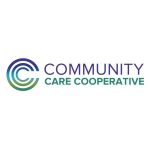Completed Phase I of Campaign Brought $5 Million in Advanced Telehealth Resources and Training to the State’s Most Vulnerable in Response to COVID-19 Pandemic
BOSTON–(BUSINESS WIRE)–The FQHC (Federally Qualified Health Center) Telehealth Consortium today announces the launch of Phase II of its campaign to greatly increase telemedicine capacity in Massachusetts’s community health centers. The Consortium, a partnership of Community Care Cooperative (C3), the Accountable Care Organization (ACO) that advances community-based care for MassHealth members, and the Massachusetts League of Community Health Centers, the State’s Primary Care Association, announces financial support for the Phase II launch totaling more than $4.7 million. The funds will be used to address health disparities through telemedicine, achieve sustainable telehealth capacity at FQHCs, and measure, evaluate, and disseminate learnings.
Phase II of the campaign will focus more fully on narrowing the “digital divide,” which disproportionately impacts poor and BIPOC (Black, Indigenous and People of Color) communities. “Nearly one in every six households in Massachusetts lacks broadband access, and with more healthcare taking place virtually, patients in under-resourced communities can find themselves ‘off the grid’,” said Christina Severin, President and CEO of C3. “It is absolutely essential that we close this digital divide. Telehealth is not only needed to fight COVID-19, it is proven effective in providing better, more convenient care for lower-income and BIPOC communities, and will be critically important when the pandemic is over.”
Telehealth programs are not only essential to patient health, but also benefit the health of community health centers themselves. “Most health centers are moving to a proactive digital health strategy. Their leaders recognize telehealth’s ability to drive patient access and equity, and as a ‘new normal’ necessity in staff recruitment and retention,” says Michael Curry, President & CEO of the Massachusetts League of Community Health Centers. “It is critical for FQHC’s to remain competitive in an ever-changing healthcare landscape, and efforts to increase telehealth support must be carried out with a focus on sustainability and equity.”
The campaign’s next phase will focus on ensuring that FQHCs have what they need to fully develop, deploy, sustain, and integrate telehealth modalities into primary and behavioral care. This includes providing better access to broadband, remote patient monitoring equipment, increased digital literacy training, and outreach in communities that health centers serve.
In addition, the campaign’s policy and advocacy initiatives will focus on concretizing that lack of access to broadband and other technology as a social determinant of health that must be prioritized to avoid a deepening of existing racial health inequities. The campaign will work to focus policymakers on this emerging issue and champion solutions to meet this basic need for everyone who lives in the Commonwealth – and beyond.
Phase II of the campaign launches with a $3.1M grant from the FCC as part of the FCC Connected Care Pilot Program, $1,040,000 from an anonymous donor, $500,000 in support from the Commonwealth of Massachusetts, and a $40,000 grant from the state Department of Public Health.
Phase II builds on the success of the Consortium’s $5 million Phase I, completed in six months in 2020, which supported telehealth capacity, training, and infrastructure improvement among the 35 community health centers located throughout the Commonwealth that make up the Consortium. Key accomplishments of Phase I include:
- Enabling mobilization of a rapid telemedicine response at all Consortium-affiliated FQHCs, providing hardware, software, IT & practice-coaching support.
- Helping to replace lost health center revenues associated with drop-off of in-person visits. By August, revenues approached 80% of pre-COVID levels, with behavioral health visits exceeding pre-COVID levels and dental telehealth increasing by a factor of six.
- Conducting in-depth assessments of telehealth capabilities at FQHCs and preparing gap analyses for future implementation purposes.
- Developing tools and curated resources to create a Telehealth Playbook of best practices designed to enable member FQHCs to develop and achieve their telehealth goals.
- Securing top policy priorities for health centers and continued stable reimbursement of core health center services for all modalities through the next two years.
Phase I of the campaign also made it possible to determine that patient satisfaction with telemedicine programs is on par with in-person visits, with 93% rating their experience ‘good or excellent.’ Behavioral health showed the highest rates of adoption and satisfaction among telemedicine offerings. In addition, approximately half of Asian, Latinx and Black Americans are highly interested in continuing telemedicine check-ups and urgent care, post-pandemic. However, disparities in satisfaction by race and ethnicity in video visits and other areas indicate increased need for digital-literacy training, access to connected devices, and efforts to improve broadband access, which Phase II of the campaign will work to address.
Community Care Cooperative (C3) is a 501(c)(3) Accountable Care Organization (ACO) that leverages the proven best practices of ACOs throughout the country and is the only ACO in Massachusetts founded and governed by Federally Qualified Health Centers (FQHC) and exclusively focused on advancing integrated and coordinated community-based care for MassHealth members. C3 works with its 18 member FQHCs to strengthen health centers across the state, and continued growth enables C3 to better serve MassHealth members across the Commonwealth. To view a list of C3 health centers, click here.
The Massachusetts League of Community Health Centers was founded in 1972 as one of the first state Primary Care Associations (PCAs) in the country. Its mission is to promote population health equity for all through leadership and programs supporting community health centers and members in achieving their goals of accessible, quality, comprehensive, and community responsive health care. A non-profit 501(c)(3) organization, the League serves as an information source on community-based health care to policymakers, opinion leaders and the media, providing a wide range of technical assistance to health centers and communities,
Contacts
Abby Akoury
Chief of Staff 857-302-4261
aakoury@c3aco.org

